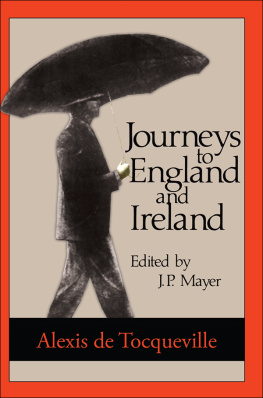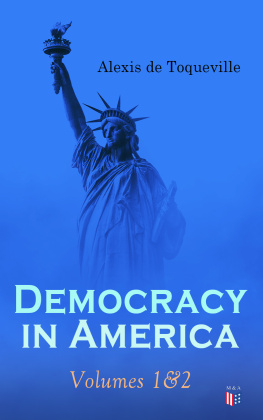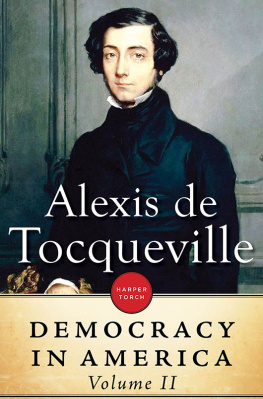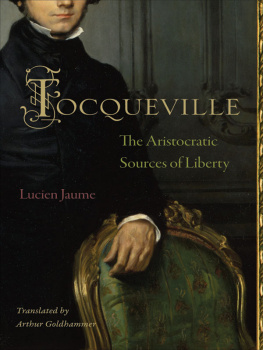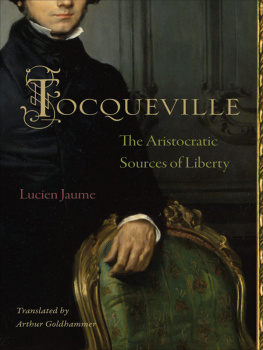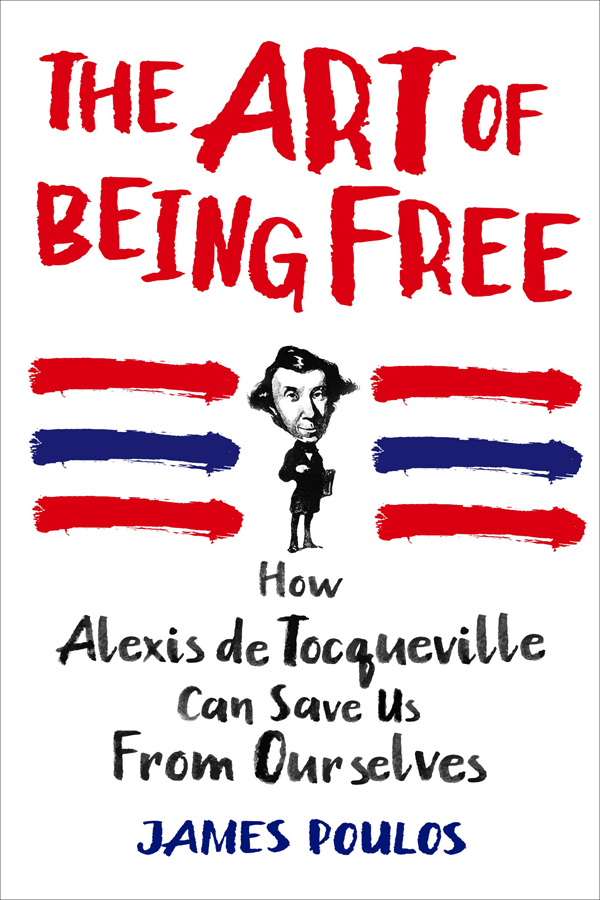Contents
Guide

The author and publisher have provided this e-book to you for your personal use only. You may not make this e-book publicly available in any way. Copyright infringement is against the law. If you believe the copy of this e-book you are reading infringes on the authors copyright, please notify the publisher at: us.macmillanusa.com/piracy.
With love to N.J.P.
These are the spells by which to reassume
An empire oer the disentangled doom
This is a weird book for people who feel like they might be a little crazy.
Maybe more than a little.
It is weird in that it utilizes a concept familiar from the internets junkier precincts: this one simple trick will solve your stubborn problem! But instead of a trick, it offers another book, written by a young French aristocrat practically two hundred years ago. Huh? And instead of a single problem, it swaps in the entirety of life itself! Your life, my life, all our lives (if were American, anyway). Yeah. And, finally, instead of proposing to resolve the strange situation of democracy in America, as that book does, this book proposes that our situation can really only be ameliorated. Ours is a crazy predicament that cant be hoped, prayed, distracted, worked, or played out of existence. Its so maddening because it cant be solved. But what if that was okay? Maybe, just maybe, our predicament wont break us if we choosein an unexpected wayto give ourselves a break.
If no part of this wager or its assumptions ring intuitively true to you, this book is probably not going to work for you. Of course, you should try it out anyway. (What are you, a slave to probabilities or something?)
But if it does ring true, you probably do feel pretty crazy. You probably have a sensevague as it may bethat the weirdness of American life and the intractability of its predicaments, large and small, are intimately, inexorably bound up with the craziness of everyday life. Its entirely possible that the motto on our coinage, IN GOD WE TRUST , still captures the most popular response to that. But, increasingly, a more useful motto for us might be DEAL WITH IT .
This book is my attempt to DEAL WITH IT . One of its themes is that books, ironically, can only get us so far in dealing with it. Thats not just because reading a conversation is like talking to a painting, a saying Plato attributes to Socrates. Its because we Americans have a specific problemour crazinessthats baked into the fabric of our lives and the fiber of our being. That problem is especially poorly suited to answers you can think up, write down, and read in a book. Nevertheless, it would be truly insane to look upon books as devilish garbage that can only confuse and fail us. In fact, one unsettling way our craziness manifests is in our temptation to take a bipolar view of books. So many of them let us down, or wind up irrelevant on arrival, that our cynicism and disillusionment grow as fast as our quietly desperate hope that the next book, somewhere out there, will finally deliver the goods. Imagine how reassuringly more sane we could be if we spent a little time with a book that did manage to address our specific problem more directly and fruitfully than any other.
I would like you to consider that Alexis de Tocquevilles Democracy in America is that book, and it is the reason I have bothered to write the book you are reading now. After all, instead of writing this book, I could have hiked to the top of Griffith Park. I could have eaten a salad on the Malibu pier. I could have recorded a full-length LP with my band, or played baseball with my son, or worked part-time as an Uber driver to send my parents on a Greek vacation without putting a painful dent in my salad budget. But here I am, the author, and here you are, the reader. This experience is what we make of it. Lets make the most.
TUTORIAL
In order to do that, before we get into the genius that is Tocqueville, Id like to give you a kind of how-to guide: namely, how to read this book. To be frank, this is likely not much like other books you have read. Although it concerns heavy, intense, and very intellectual issueswhat some philosophers call matters of ultimate concernit is written for you , not philosophers. This is not even a book just for Tocqueville nerds. Many nettlesome debates underlying philosophy and political theory will simply be danced over, sometimes with questionable dance moves and unconvincingly sexy glances. In part, thats because Ive chosen to focus on capturing your imagination. In larger part, however, its because I found myself, several years ago, unwilling and unable to become a full-on expert in academic thought manipulation. Confronted with a choice of completing a doctorate in political theory or talking with real Americans about what the hell is happening to us in our crazy, mixed-up world, I opted for the latter. Some professors out there dont have to make that kind of choicewhich is nice for them, probably. For me, its paramount that the way I talk with you about our crazy, inescapable predicaments comes from a recognizably human place, and the best way I can do that is by living and writing as someone who doesnt have to strain to convince you that were both blundering along in the same real world.
Nevertheless, although this is the kind of book where you will be invited to contemplate bad sex, having it all, and other canonical concerns of the age, this also is a book that is teeming with big words, sweeping concepts, and a perspective on our human past, present, and future, such that its scope can seem jarringly out of proportion to its ostensibly casual attitude. But if you can handle it in Shakespeare, who took that vertiginous contrast to amazingly dizzying heights, you can certainly handle it here. This aint Shakespeare. In fact, crazy combinations of high and low are more than just a reflection of real life. They are real life.
And here is my first and last trigger warning: even if you are a typical postmodernist, you might be taken aback a few times by the shifts in tone. Not only do the highbrow and the lowbrow mix in this book; the middlebrow jumps in too. Even worse (for some people), the profane and the sacred intermingle. This is a book that deliberately follows Tocquevilles lead by taking religion and spirituality as seriously as it does theory and practice. If this makes you nervous, or fills you with dread that I am going to smuggle in an ideological agenda , I invite you to DEAL WITH IT and read on.
Seriously: what is the worst that could happen? I am not going to hypnotize away your commitments or principles. You will not be brainwashed or traumatized. This book is for souls mature enough to function in an interesting, productive, and, yes, risky conversational environment. Despite what you may have heard or sensed, the bar for entry here is actually pretty low. From beginning to end, I ask, with all the solicitousness of an online dating profile, that you be tall enough to ride this ride.
So here is your how-to guide for reading The Art of Being Free . First, do not read it as a political book. It isnt one. There are lots of great political books about Alexis de Tocqueville and his globe-straddling masterpiece. But McElroy makes zero reference to Alexis de Tocqueville, even though this books title is found verbatim in Democracy in America:
It cannot be repeated too often: nothing is more fertile in marvels than the art of being free, but nothing is harder than freedoms apprenticeship.


